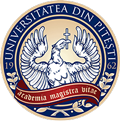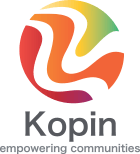Growing diversity in EU challenges the education sector to develop strategies for accepting and embracing difference and empower teachers to provide instrument of understanding to student in this complex and changing reality. Within this landscape, the school is a critical institution for transmitting values and attitudes that honor openness and learning from difference. The educational sector can provide a place where young people learn the skills and competences that will help them resolve conflicts in a peaceful manner and learn from diversity.
ODISSEU was designed to develop young people digital and media literacy competences, so as to develop resistance to all forms of discrimination. This is a first person experiential game for secondary students follows a young person’s journey from oppression in their home country to exile in a country of asylum. It was developed to be aligned to the below mentioned priorities which served as a steer to the project design.
One of the key objectives of the ODISSEU project is to influence the wider education system in the 6 partner countries. The use of ICT in particular will allow for a transformation of the role of the teachers and students from passive recipients to active producers of information, thus contributing to their empowerment. Asylum seekers will learn how to value their stories as resulting in a strengthen cohesion and inclusion.
Moreover, the ODISSEU project aims at achieving the following goals:
The ODISSEU project methodology aims to build on the existing expertise of partners in school education and asylum seekers welcome, using global citizenship and participatory methods. The project consortium will apply this existing expertise with the target audience to their context, through a full design - feedback - redesign iterative cycles in each of the 6 delivery countries.
A key part of the project methodology is working closely with the 6 Peer Groups (one in each partner country) and local schools, which will be interested and motivated to support. The Peer Groups, which will be formed by the target groups and stakeholders, will provide inputs in the Research and Needs Analysis, while they will also contribute to provision of feedbacks in the development phase, assessing the ODISSEU outputs.

Meath Partnership is a dynamic local development company responsible for the design and implementation of local, rural and community development programmes in Co. Meath.
Visit website
CARDET is one of the leading research and development centers in the Mediterranean region with global expertise in project design and implementation, capacity building, and e-learning. CARDET is independently affiliated with universities and institutions from around the world, such as the Yale University and the International Council of Educational Media.
Visit website
Oxfam Italia is an Italian Development NGO, non-profit association, full member of the International Confederation Oxfam which involved 20 organizations networked together in more than 90 countries, as part of a global movement for change, to build a future free from the injustice of poverty.
Visit website
The Friedrich Alexander University Erlangen-Nuremberg is the second largest Bavarian University, currently with about 40,000 Students and 3,000 lectures and staff members.
Visit website
University of Piteşti (UPIT) is a state university situated in the Southern part of Romania, in the Argeş County (120 kilometers from Bucharest). It is a comprehensive university and has around 10,000 students. UPIT provides educational, training and research services, being an intellectual and academic community accredited by national and international quality agencies.
Visit website
Kopin (Koperazzjoni Internazzjonali – Malta) works for human rights and children’s rights, with the aim to empower its beneficiaries as key agents for social change and advancement. It is a hybrid, operating in three interconnected fields: international sustainable development cooperation, refugee support and global education
Visit website